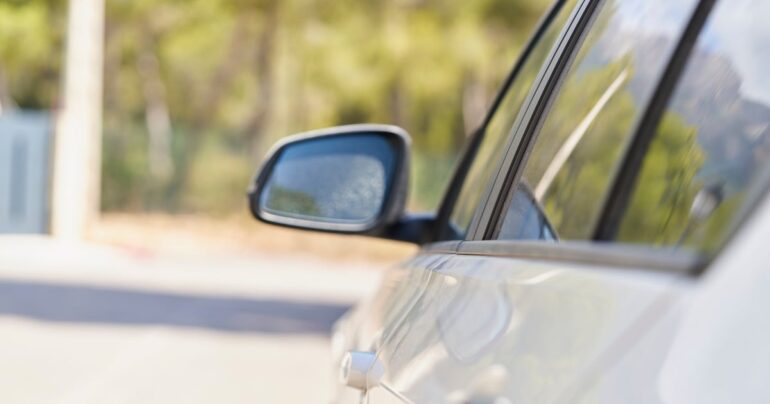🔴 Website 👉 https://u-s-news.com/
Telegram 👉 https://t.me/usnewscom_channel
Under President Trump, the country is experiencing an increase in cruel policy decisions that impact vulnerable people — from the slashing of Medicaid dollars to the recent civil commitment executive order that claims to be focused on treatment, but that experts say will further criminalize poverty and homelessness.
As a provider who works with the unhoused, I am experienced with how difficult it already is for this marginalized community to access things like housing, hospitals and drug treatment beds. I am constantly forced to watch people suffer harm from systemic neglect, abuse, erasure and silencing. Making the complex ethical decisions around care that my work requires on a daily basis can feel impossible when there is little I can do to address these issues.
Bumping up against barriers to care can lead to what those working in public health spaces call moral injury, a little-diagnosed condition that not only veterans and health care workers experience, but anyone who engages with systems tasked with providing care that do not align with the reality of neglect under capitalism.
New 2025 research identifies moral injury as “Persistent distress that arises from a personal experience that disrupts or threatens: (a) one’s sense of the goodness of oneself, of others, of institutions, or of what are understood to be higher powers, or (b) one’s beliefs or intuitions about right and wrong, or good and evil.”
I understand this personally. I had an experience years ago that affected me irrevocably.
As an advocate in Southern California working for underserved populations, on an evening outreach in Skid Row, our team came across a man in his 40s who was trapped in his car, unable to drive or get out because of sudden paralysis in his legs.
We offered to call an ambulance, but he refused. He said he had been praying for three days and that he knew God would send help.
“Maybe we are the help you are praying for,” I said.
“No hospital. I just need to get back to my RV,” he replied.
We agreed to support him in getting home, a heavy lift since he had been stuck for days and had repeatedly soiled himself in his desperation. We cleaned him up the best we could, physically moved him to the passenger seat, wrapped the driver’s seat in layers of trash bags, and made a plan for the team to follow behind while I drove him back to South Los Angeles.
His refusal to seek hospital support may make it sound like he didn’t care about his own health. What was more likely was that he feared how he would be treated in the hospital. Research shows that people on the margins know how society sees them and how it disadvantages them in systems of care.
I replayed that drive with him over in my mind: his gratitude, his belief in prayer, and a story of his beloved 9-year-old daughter who lived with her mom.
The following afternoon, I returned to his RV alone, with groceries and the intention to try again to get him to the hospital. He didn’t answer. I called out to him as I slowly opened the camper door.
I found his body, his mouth agape, his skin pallid. I touched him. He was cold. It was the first time I had discovered a dead body of one of our participants on outreach. I felt shattered with self-blame, guilt and something akin to loss of faith.
After that discovery, I lost interest in relationships, sexuality and my work. It was challenging to eat and sleep, and I lost a lot of weight. I had traumatic, haunting and discursive thoughts similar to those with PTSD, sensitivity to light and sound, migraines, stomach problems and suicidal ideation. It became painful simply to exist.
“No amount of burnout prevention can remedy the mental health impact of structural violence against marginalized people on them or the people who serve them.”
After witnessing so much suffering, I felt a complete abandonment of hope around all systems, especially social safety nets and systems of care. Everywhere I looked, I saw barriers for the most vulnerable, and it felt like I was complicit in enforcing these barriers.
The cognitive dissonance between the general public’s view of a civil society versus the reality of what many people experience felt maddening. Many are feeling that same dissonance today.
“That lack of awareness is going to set the country up for a real fall,” Brian Castrucci, president and CEO of the de Beaumont Foundation, said in a recent University of Minnesota study, citing the Department of Health and Human Services cutting 10,000 jobs and the Centers for Disease Control and Prevention cutting up to 90% of its funding to state and local health departments.
Trump’s executive order on civil commitment creates the conditions for many more unhoused people to perish without dignity, without addressing the root causes of homelessness. Poor and unhoused people will die in even greater numbers the more government-funded services continue to be cut. The broad impact will be devastating to unhoused people, their families and our culture as a whole.
No amount of burnout prevention can remedy the mental health impact of structural violence against marginalized people on them or the people who serve them. A society that punishes poverty and vulnerability is a sick society in decline.
Psychiatrist and Holocaust survivor Viktor Frankl is the founder of a form of therapy known as logotherapy. The author of several books, including “Man’s Search For Meaning,” Frankl advocated for a worldview that embraces finding a sense of meaning or purpose in attitudes and actions around suffering.
As an atheist, Western, feminist Buddhist, I believe that part of both spiritual and social liberation comes from being empathetically witnessed by community, from access to personal pleasure and joy, and from a willingness to face one’s shadows.
Frankl writes, “Everything can be taken from a man but one thing: the last of the human freedoms—to choose one’s attitude in any given set of circumstances, to choose one’s own way.”
Soma Snakeoil is the executive director/co-founder of The Sidewalk Project, which specializes in resources for street-based sex workers and survivors. She is a Public Voices Fellow of The OpEd Project.
Do you have a compelling personal story you’d like to see published on HuffPost? Find out what we’re looking for here and send us a pitch at [email protected].

